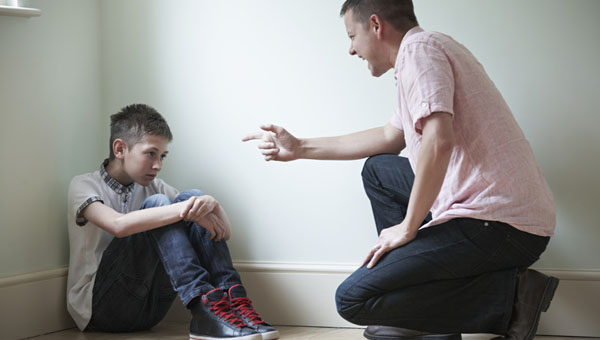By Audrey-Ann Deneault and Alexandre Gareau
Guest Contributors

 In comparison to earlier decades, people in North America now study longer, start their careers later and establish committed relationships later.
In comparison to earlier decades, people in North America now study longer, start their careers later and establish committed relationships later.
These changes have given rise to a new developmental period that psychologists call “emerging adulthood,” that is, when adults are between the ages of 18 and 25.
Emerging adults feel like they have attained some aspects of adulthood, but are still exploring their identity. They are more responsible and independent than adolescents, yet sometimes remain financially and emotionally dependent on their parents.
As a result, emerging adulthood gives rise to new dynamics in child-parent relationships, which may be hard to navigate for parents and children. For example, some parents may find it difficult to grant their growing children increased autonomy and independence, and may instead actively or passively try to maintain some control over their children’s lives.
Our research has shown that parents who exert psychological control may impede the positive academic development of their children who are becoming adults. But parents can learn to establish a supportive relationship during this developmental period.
Parental psychological control
An influential form of parental controlling behaviours is what researchers refer to as “parental psychological control.” Parents who exert psychological control try to control how their child feels, or to impose their own views and standards on the child as a form of manipulation. Although providing guidance on how to perceive the world is important for young children, in emerging adulthood, it instead infringes on children’s autonomy.
Psychological control may be exerted through different ways. Some parents may simply set high standards for the child to uphold, while others may avoid talking or looking at their child to convey disappointment. Other parents may bring up their child’s past mistakes as a form of criticism or to induce guilt.
Importantly, some parents behave in these ways with good intentions, yet the behaviours may still be detrimental for emerging adults. Indeed, research shows that psychologically controlling parenting sets children on a poorer developmental trajectory from childhood to emerging adulthood.
Some research suggests that parents’ psychological control may affect sons and daughters differently.
In our recent study, we found that emerging men and women who experience higher parental psychological control report higher fear of failure — that is, the feeling of incompetence or of upsetting loved ones when failing. We also found that these emerging adults experience adverse effects of fear of failure on their academic life, and that psychological control directly influenced sons and daughters in different ways.

Some parents have good intentions yet their behaviours may still be detrimental for their growing children. Photo credit:
(c) Can Stock Photo / creatista
Higher fear of failure
Our sample included 1,796 undergraduate students aged between 18 and 25 who were taking an introduction to psychology course at the University of Ottawa. The analyses focused on the 1,333 respondents who identified as female and the 459 who identified as male. (The study did not include any students who identified as non-binary or gender non-conforming.)
Among the students, 42.1 per cent still lived with their parents. Participants who lived with their parents reported as much psychological control as those who did not. This may not be as surprising as it seems, given that psychological control can be exerted in person, via phone calls, text messages or emails.
Our results show that when emerging adults reported experiencing more psychological control from their parents, they also reported more fear of failure. This result held up regardless of parents’ and children’s gender identity (for example, daughters reported experiencing as much psychological control from their mothers as did sons with their fathers).
This shows that emerging adults who are still exploring their autonomy and in search of their adult independence can internalize their parents’ psychological control. They can be then left with a negative sense of their competencies and a feeling of shame when failing to meet their parents’ standards.
Impact on academics
Our study proposed that a students’ fear of failure would in turn lead to worse academic adjustment — how the student adjusts to academic life. We found that fear of failure predicted worse academic achievement, lower satisfaction of academic achievement, lower goal progress and lower academic satisfaction, regardless of whether the student identified as male or female.
These results show that the fear of failure has a clear impact on how emerging adults adjust to school. Indeed, students who fear failure will earn lower grades, but will also be less satisfied with their grades, regardless of their performance. Students who fear failing will also feel like they are not progressing as well towards the academic goals they set, and will also enjoy school less.
Additionally, for daughters, the parents’ psychological control had a direct influence on how satisfied they were with their academic achievement, whereas for sons, the parents’ psychological control had a direct influence on how they progressed in their academic goals.
Overall, our study shows that the impact of psychological control can trickle down via fear of failure to influence how male and female emerging adults experience post-secondary education.
It joins a number of other studies showing how over-involved parenting is detrimental for children. In emerging adulthood, it’s important that parents and children establish a new relationship dynamic that enables emerging adults to feel independent but supported.

It’s important that parents and children establish a new relationship dynamic that enables emerging adults to feel independent but supported.
(c) Can Stock Photo / michaeljung
Tips for parents to support their child’s emerging adult autonomy
1. Even if you don’t perceive yourself as controlling, your child’s perception of your behaviours is what matters most, and forms the basis of their reality. Checking with your child if you are inadvertently stepping over their autonomy will help you understand when to offer guidance.
2. As difficult as it may be, parents of emerging adults should recognize that it’s normal that their child makes their own decision — even if those decisions differ from what the parents might choose. Making bad decisions is part of an important learning process while forming adult identity. When approaching your children about a decision you foresee as problematic, try to keep an open mind. Parents’ role is to provide support when children make their decisions, not to make the decision for them.
3. Encourage the positive actions that your child takes, not just the results. If parents only praise their child for their achievements (such as high grades), children may come to believe that they can only make their parents proud when they succeed. Instead, parents can praise their children’s hard work, as the journey is more important than the results.
4. Be understanding when your child faces difficult times or failures. Do not criticize them and suggest that they could have done better if they had acted in a different way. A child going through difficult times already feels bad; feeling like their parents are also disappointed will only make them feel worse. Moral support and understanding are key.![]()
Audrey-Ann Deneault is a PhD Candidate in Developmental Psychology at the L’Université d’Ottawa/University of Ottawa and Alexandre Gareau is a Postdoctoral research fellow in educational psychology, Faculty of educational sciences, at the Université Laval.
This article is republished from The Conversation under a Creative Commons license. Read the original article.
 Pride News Canada's Leader In African Canadian & Caribbean News, Views & Lifestyle
Pride News Canada's Leader In African Canadian & Caribbean News, Views & Lifestyle





